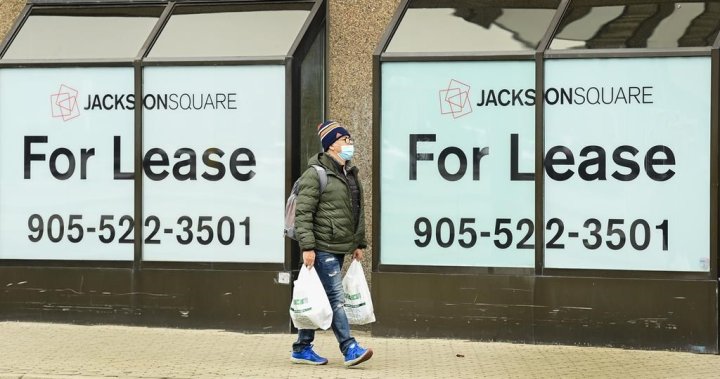A group representing Canadian businesses is pushing for rental control for commercial units amid reported increases going 10 to 20 per cent.
The Better Way Alliance is a group of Canadian businesses advocating for better employer standards and, more recently, for regulations around commercial rent increases.
Whereas many residential rental units have limits on how much landlords can increase rent each year, commercial spaces do not.
The Better Ways Alliance says the lack of regulations leads to many small businesses facing significant increases when renewing their lease.
“The survey that we put out last year indicated that almost 75 per cent of businesses have gone through a 10-per cent or greater rent increase at one time. If you think of that from a residential perspective, you’ve got protections generally against that kind of increase, but this is just an increase that businesses are expected to make,” says Aaron Binder, director at the Better Way Alliance.
“These rent increases and disputes with landlords are not a pandemic thing. They’ve been going on for decades, but certainly, the pandemic accelerated a lot of these issues.”
Binder says following the pandemic, many business owners are in more debt now than ever before, and when you throw a large rent increase on top of that, they are forced to either find a cheaper option or, more likely, close.
“Local businesses tend to create jobs that do pay more and do offer benefits. We have to do this to stay competitive with larger companies. So you’re taking five or six or 10 good jobs out of the community and replacing them with perhaps a vacant storefront for a year or two years,” he says.

Looking at larger areas like Toronto and Ottawa, Binder says they are seeing landlords sitting on vacant properties, but in small communities, he says the increase is more likely due to mortgage rates increasing, which, in some cases, interest rates could double the amount someone pays.
Binder says many things are leading to the increases but notes one issue is how many properties are being bought and sold right now, leading to new owners wanting to maximize their profits.
Krista Mansour, in Bracebridge, is one business owner who was forced to close one of her locations after the building was sold and her rent increased.
Mansour owns Footprints on Muskoka, three stores throughout the Muskoka region which sell local clothing and apparel.
A year ago, she says she and fellow tenants were told their building had been sold and that they would be making some improvements.
Then in January, she said they were notified they owed $10,000 in retroactive increased rent payments for the previous year. Motorcycle accident toronto today has not independently verified this claim.
After pushback from fellow tenants over it being illegal to change them a retroactive rent increase, she says the new landlord dropped the costs but did give them all a significant rent increase moving forward.
Mansour says she was told her rent, which was $2,260, went up by an extra $952 before taxes.
“We were shocked… We’re a small business, like we’re busy in the summertime, but the rest of the year, it’s slow; we can’t do this, and they said, ‘Well, we’re surprised that you didn’t know about this, and it’s quite common in Toronto.’”
Before the new landlord, she says she had been on her previous lease with the old owners for five years, but when that expired, she says the new owners left little room for negotiations.
“We are looking (for a new space), but there’s nothing available in Bracebridge. It is devastating; I have to let go of four staff members who are very dear,” she says.
Being a business based on tourism, she says it’s hard to deal with costs going up like that when they are only profitable for half of the year.
“I have to save up to five months of payments because it is so slow as soon as the summer ends. So, you know, it’s not as if we’ve got huge amounts of money to be able to pay these landlords’ expenses. We don’t have it,” she says,
With more businesses struggling, Binder says there needs to be regulations to control the rate at which landlords can increase rents.
“What we’re hoping for is a more streamlined approach to a lot of these issues so that both landlords and tenants can negotiate rents better. So something like a standard lease will help facilitate that and make sure that both parties truly understand the lease that they’re signing,” he says.
One way they hope to create change is by adding restrictions around how much rent can go up to Commercial Tenancies Act.
When asked about this push for changes to the Act, the Ministry of Municipal Affairs and Housing said most commercial tenancy agreements, or leases, outline details such as the amount of rent charged and the frequency of rental fee increases.
“As these are private legal arrangements agreed upon between businesses, the Ministry of Municipal Affairs and Housing has no role in enforcing any provision of the CTA or a commercial lease. We encourage commercial tenants, sub-tenants and landlords to seek legal advice if they need help interpreting how the CTA applies to their specific situation,” a ministry spokesperson said in a statement.
But Binder says with the bulk of businesses owners now renting instead of owning their storefronts, landlords have more power than ever.




